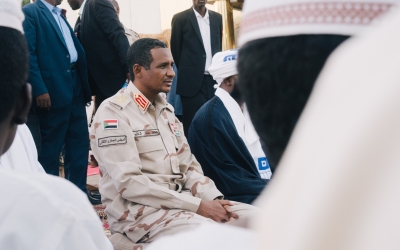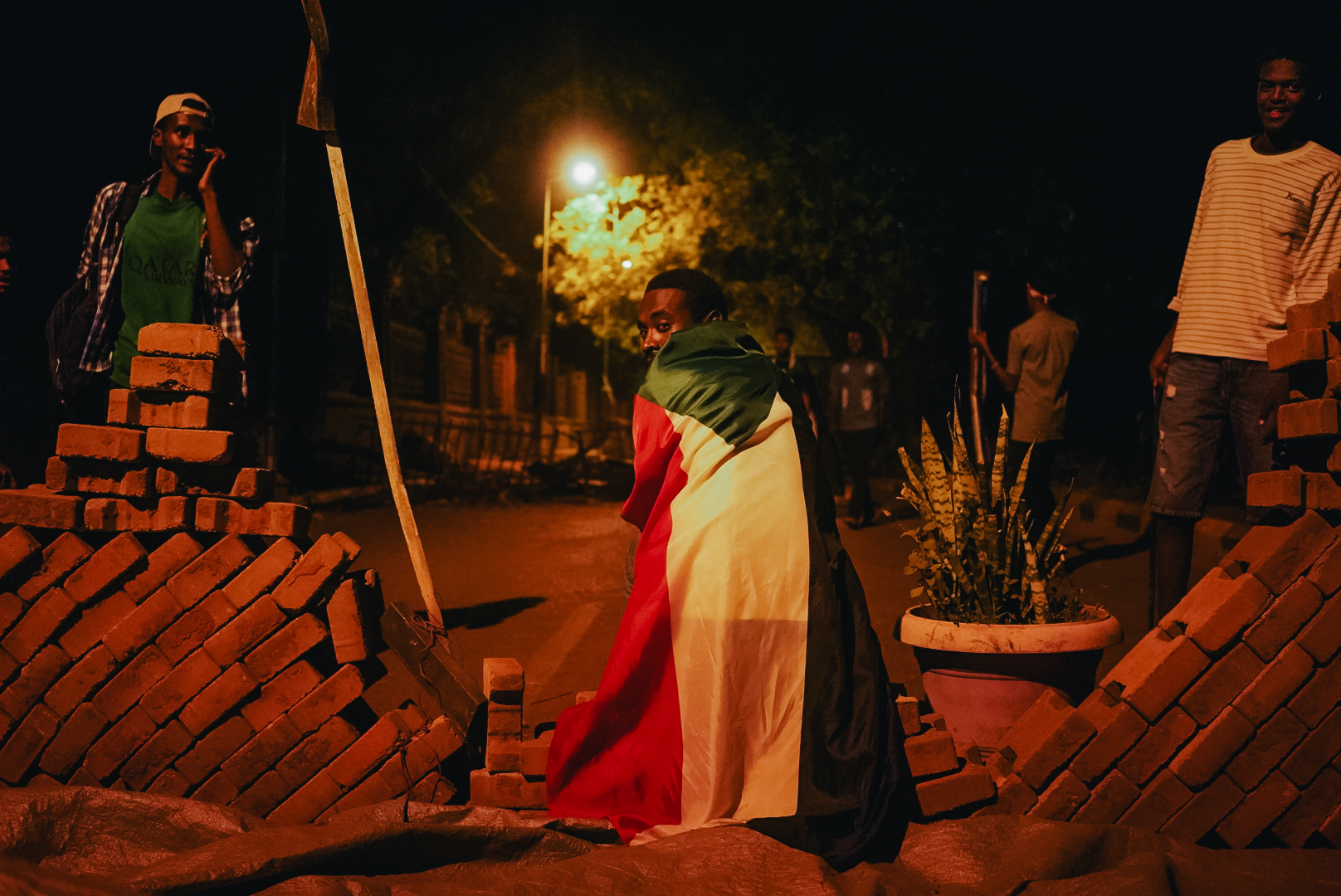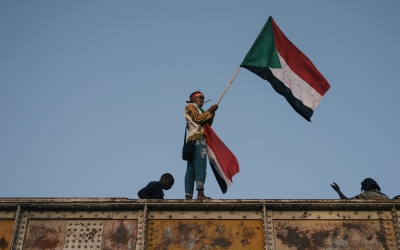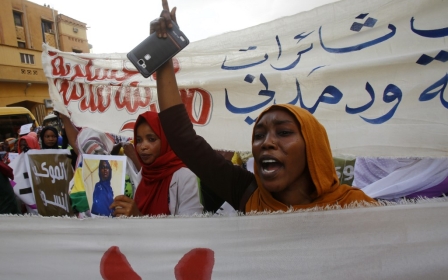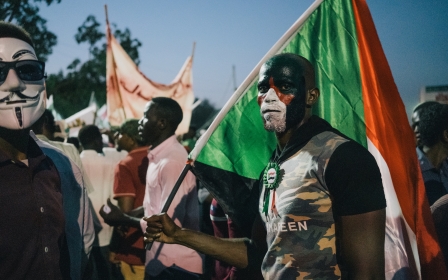Sudanese forces violently crack down on Nile-side neighbourhood
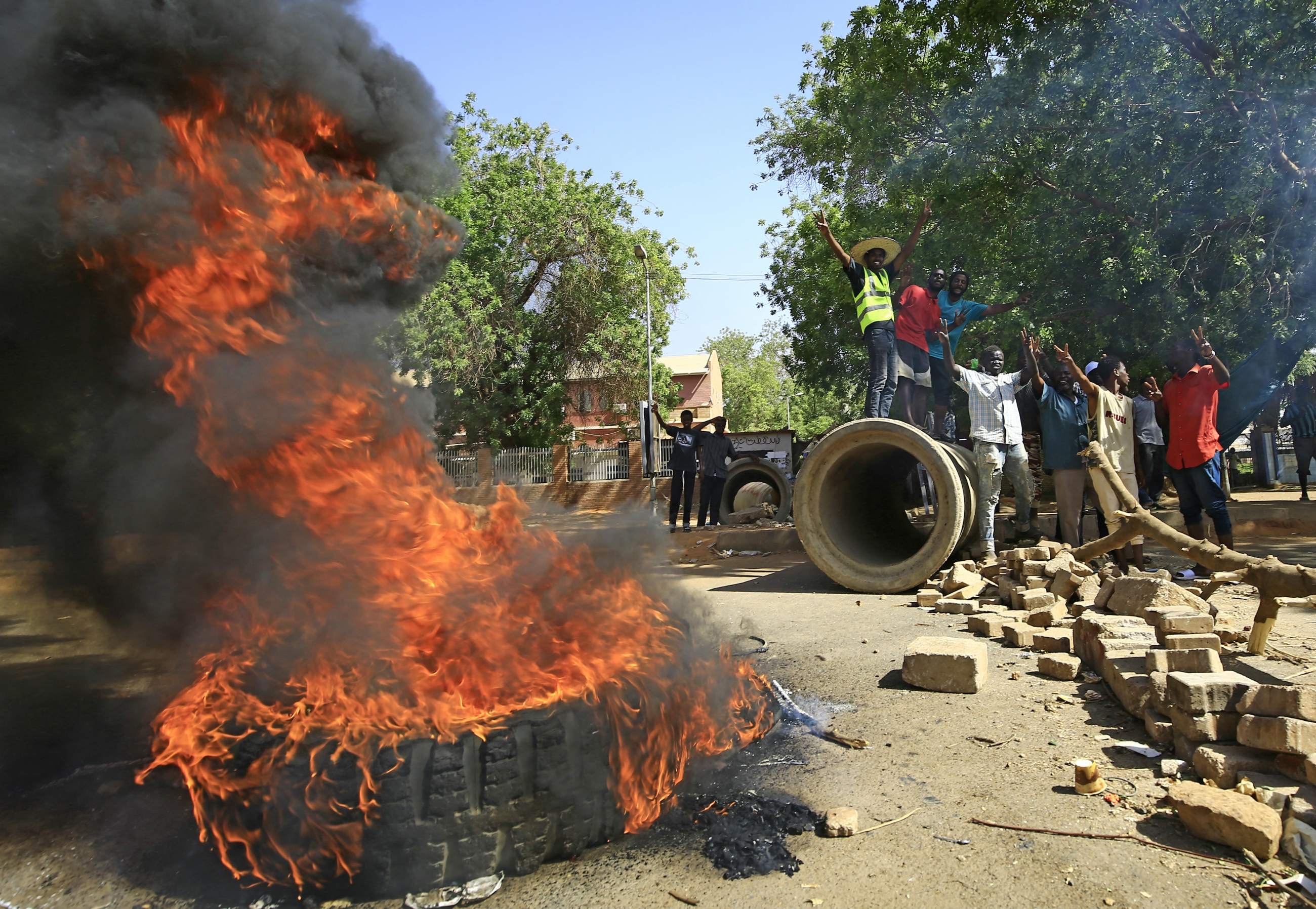
Sudanese armed forces on Saturday began a crackdown on the Nile-side area of Khartoum known as "Colombia," a neighbourhood known for its liberal attitude to alcohol and drugs that lies close to the city's sit-in demonstration.
Eyewitnesses told Middle East Eye that the army, Rapid Support Forces (RSF) militia and police blockaded the area from all directions and heavy gunfire was heard from around the area.
The neighbourhood, known as Colombia by both the pro-civilian rule protesters who have occupied Khartoum's streets and ordinary citizens, has become controversial in recent weeks, with the ruling Transitional Military Council (TMC) labelling it a "haven of outlaws".
The Sudanese Professionals Association (SPA), an umbrella organisation of protest and opposition groups, called on the protesters to withdraw from the area to avoid any confrontation with the army and militias.
The crackdown came two days after the TMC warned that it would take "legal appropriate measures" to stop anything deemed dangerous to the security of the country or the revolution that toppled Omar al-Bashir.
Long-time autocrat Bashir was removed from power on 11 April by the military after weeks of protests against his 30-year rule.
Since then, demonstrators have refused to leave a sit-in site outside the military's headquarters in Khartoum, adjacent to Colombia, until power is handed over to civilians.
Bloody attack
An eyewitness, 30-year-old Hamad Mohamed, told MEE that Colombia and the streets branching off Nile Street were all blocked by government forces, who opened fire against the protesters.
Mohamed said he saw some casualties falling to the ground, though added that "it didn't look like they were serious injures".
Later, AFP reported that one person was killed and 10 were wounded.
"After regular forces opened fire, there were casualties on Nile Street near the sit-in site," the Central Committee of Sudanese Doctors said in a statement. The committee did not specify which forces opened fire or identify those killed or wounded.
"The army and RSF soldiers look insistent on not only breaking up the Colombia area but also the presence of protesters on Nile Street and around Khartoum University," Mohamed said.
"They are using massive violence and shooting live bullets against everyone while they are heading towards the sit-in square."
Another witness Asma Ahmed, 24, told MEE that the military crackdown was large and she was suspicious that Colombia was not the only target.
"The number of forces and the extensive use of violence, including live fire and the flogging of protesters by RSF soldiers, indicate that these forces may not only aim at dismantling Colombia but gradually breaking up the entire sit-in," she said.
These suspicions were shared by the SPA, which said in a statement that the TMC is planning to disperse the sit-in, holding the council responsible for any threat to the lives of the protesters.
"Following the events of today and yesterday, in which three more martyrs of the Sudanese revolution lost their lives, the Transitional Military Council showed clear signs of its intention to use force to disperse the sit-in," the statement issued on Saturday read.
"We hold the TMC accountable and responsible for the crimes of the previous days, and we warn of the dangers of any further military escalation or any attempts of attacking the sit-in."
The TMC has ruled since Bashir's removal from office, but it is locked in negotiations with civilian parties over the make-up of the authority that will next take power.
Protest leaders and opposition politicians are insisting the next administration should be all or overwhelmingly civilian, while the military maintains it should have prominence in the body.
On Saturday, the SPA blamed the rise in tensions on Khartoum's streets on the TMC's "intransigence" and its demand for the coming administration to have a military make-up.
Drugs and alcohol
Colombia, which lies beside Nile Street, the road running down the eponymous river, is where hundreds of Sudanese youth and soldiers sit together drinking alcohol and smoking hashish.
The neighbourhood is about a kilometre in length, and dozens of alcohol sellers and drug dealers are found in the area, especially at night.
A stone's throw from the sit-in but separate from the demonstration, Colombia lies out of the control of both the TMC and opposition groups, both of which deny responsibility for what happens there.
Eyewitnesses, who spoke to MEE on condition of anonymity, said the area is totally lawless and the sounds of gunfire can be heard there all night.
"Drunken and high soldiers from the Rapid Support Forces and national army would usually fire in the air in celebration, and the protesters expressed happiness that they were bonding with the soldiers," one witness said.
Another witness said: "Selling or purchasing drugs and alcohol has become normal in the area. The youth and soldiers appear friendly, and some soldiers are even protecting the dealers."
Sudanese laws prohibiting alcohol and drugs have been practically suspended since Bashir fell, with policemen withdrawn from the streets of Khartoum.
Colombia had its notorious reputation before the revolution, Sudanese political analyst Altahir Sati notes, but in recent weeks people there have become increasingly confident as authorities stopped policing the area. Women's dress has become less modest in Colombia, too.
"Colombia is a natural phenomenon, and something that can happen in a place that hosts millions of people, especially after 30 years of oppression and laws restricting the freedom of the youth," Sati told MEE.
Activist Saad Mohamed said the neighbourhood had become an open market for the drugs dealers who have come from elsewhere to be able to sell more openly in Colombia.
The activist said a different solution to Colombia's lawlessness needs to be found, as it could merely be replicated elsewhere in Khartoum.
"Using violence is not a solution to such a problem. The TMC is still responsible for the protection of the protesters and citizens in and around the sit-in," he said, adding that opposition groups also have a moral responsibility for the area.
Outlaws or revolutionaries?
Protesters in the sit-in square near Colombia are divided on the neighbourhood. Some see it as a normal extension of the sit-in and should be treated and protected like any other part of the demonstration.
Others believe that the people there are trouble-makers who hinder the revolutionaries as they confront the TMC.
Protester Alamin Ahmed told MEE the attitude of the youth in Colombia was unacceptable and provided the ammunition for the enemies of the revolution.
Those who are sitting in Colombia are part of us
- Samar Ali, protester
"I can't see what is the benefit for the revolution from such an attitude. It's not even the practising of the personal freedoms. This attitude is only providing ground for the TMC to crack down on civilians," he said.
However, Samar Ali believed that the Declaration of Freedom and Change Forces (DFCF) alliance of opposition groups should stand by the people of Colombia, as they are only practising their normal rights and they have kept to themselves.
"They can't leave them alone in front of the TMC's fire. This is not a moral and revolutionary attitude by the opposition, I think," she said angrily.
"Those who are sitting in Colombia are part of us. Although they are coming from lower-class and deprived areas in the outskirts of Khartoum, with no education and no services … that doesn't mean they are not part of the revolution."
Middle East Eye propose une couverture et une analyse indépendantes et incomparables du Moyen-Orient, de l’Afrique du Nord et d’autres régions du monde. Pour en savoir plus sur la reprise de ce contenu et les frais qui s’appliquent, veuillez remplir ce formulaire [en anglais]. Pour en savoir plus sur MEE, cliquez ici [en anglais].


